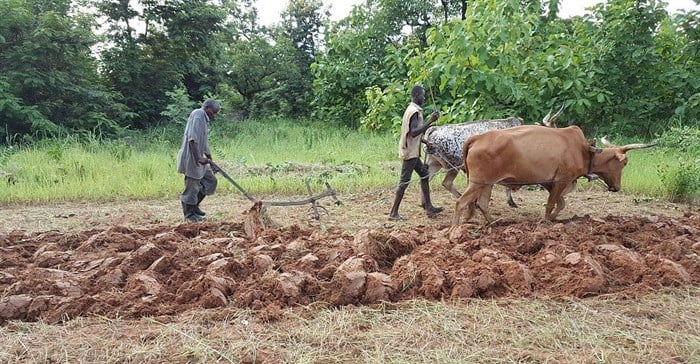Agriculture will be Africa's quiet revolution, says report

According to the report commissioned by Alliance for a Green Revolution in Africa (AGRA), smart investments in the food system can aid the revolution if planned correctly.
Despite 37% of the population now living in urban centres, the report showed that most jobs have been created in lower paid, less productive services rather than in industry, with this service sector accounting for more than half of the continent's GDP.
Commenting on the report findings, the President of AGRA Dr. Agnes Kalibata said: "Africa has the latent natural resources, skills, human and land capacity to tip the balance of payments and move from importer to exporter by eating food made in Africa. This report shows us that agriculture involving an inclusive transformation that goes beyond the farm to agribusinesses will be Africa's surest and fastest path to that new level of prosperity."
To succeed, she explained that Africa's agricultural revolution needs to be very different to those seen in the rest of world. It requires an inclusive approach that links millions of small farms to agribusinesses, creating extended food supply chains and employment opportunities for millions including those that will transition from farming.
This is in contrast to the model often seen elsewhere in the world of moving to large-scale commercial farming and food processing, which employs relatively few people and requires high levels of capital.
The report highlights the opportunity for Africa to feed the continent with food made in Africa that meets the growing demand of affluent, fast-growing urban populations on the continent looking for high value processed and pre-cooked foods.
Furthermore, it advocates that this opportunity should be met by many of the continent's existing smallholder farmers. Currently, part of this growing demand for Africa's food is met by imports. These amount to $35bn yearly and are expected to cost $110bn by 2025 unless Africa improves the productivity and global competitiveness of its agribusiness and agriculture sectors.
Private sector holds key to the transformation
The report acknowledges that the private sector holds the key to the transformation of the food system so far.
"Impressive value addition and employment is being created by SMEs along value chains in the form of increased agricultural trade, farm servicing, agro-processing, urban retailing and food services. Large agribusinesses like seed companies, agro-processors and supermarkets are also playing an increasing role in the food value chain in many regions," said Peter Hazell (IFPRI), the technical director of the report.
However, the study is clear that left to the private sector alone, growth in the agrifood system will not be as fast as it could, nor will it benefit as many smallholder farmers and SMEs as it could.
Government support is needed to both stimulate and guide the transition. As a high priority, governments need to create an enabling business environment and in particular, meet targets to invest ten percent of GDP in agriculture, agreed at the 2003 African Union (AU) Summit as part of The Comprehensive Africa Agriculture Development Programme (CAADP).
Source: allAfrica

AllAfrica is a voice of, by and about Africa - aggregating, producing and distributing 2000 news and information items daily from over 130 African news organisations and our own reporters to an African and global public. We operate from Cape Town, Dakar, Lagos, Monrovia, Nairobi and Washington DC.
Go to: http://allafrica.com/Related
Powering Africa's energy path with green hydrogen innovation 3 Apr 2025 South Africa aims to attract more private investment into infrastructure 31 Oct 2024 Great Food Puzzle: WWF launches guide to sustainable food practices 12 Sep 2024 One-third of the food we produce is never eaten: Reshaping our food system must be accelerated 10 Sep 2024 Food Indaba 2024 returns to Cape Town 4 Jul 2024 How nature-based knowledge can restore local ecosystems and improve community well-being 11 Mar 2024

























